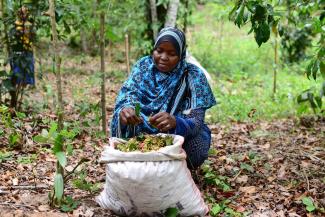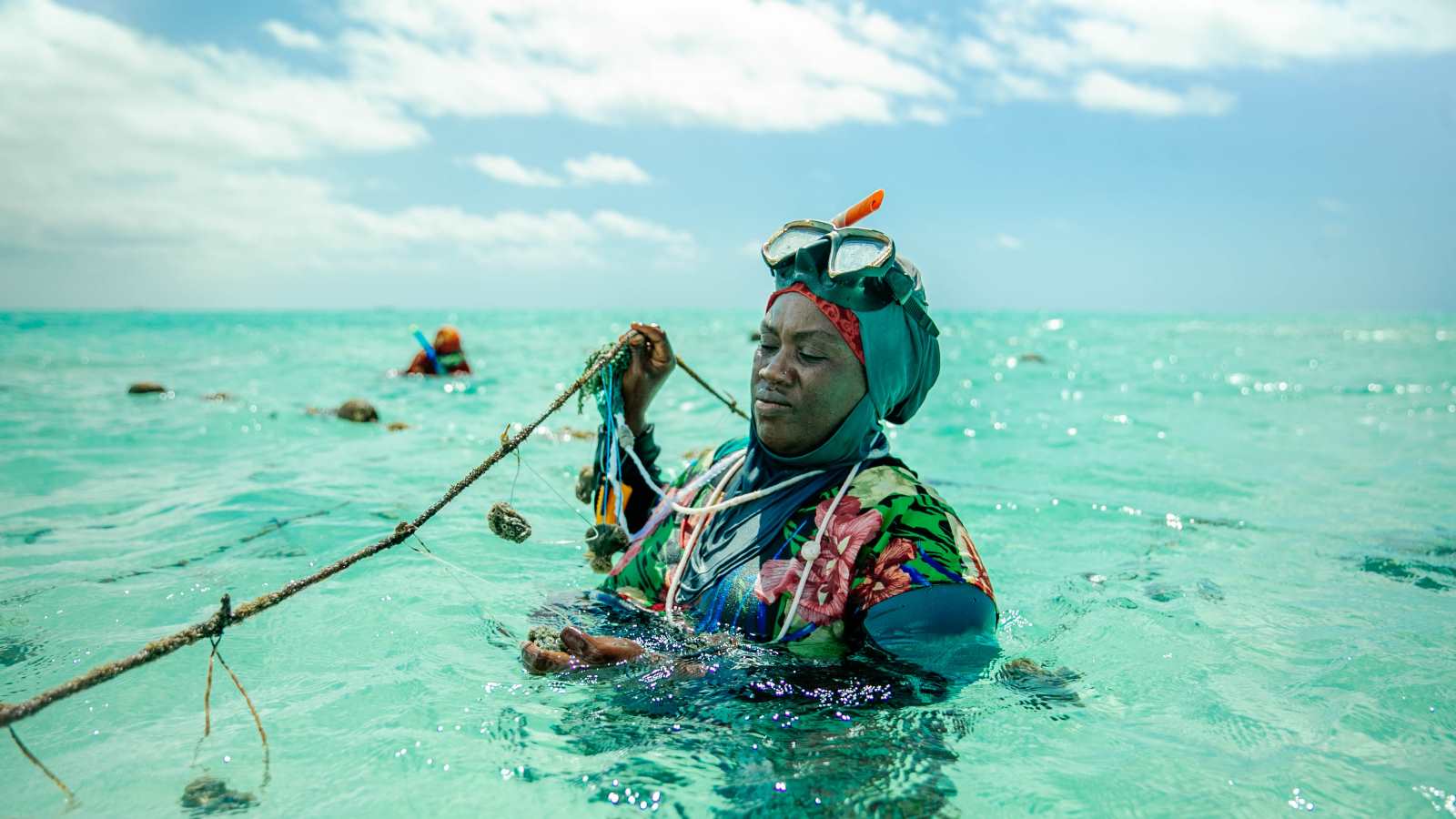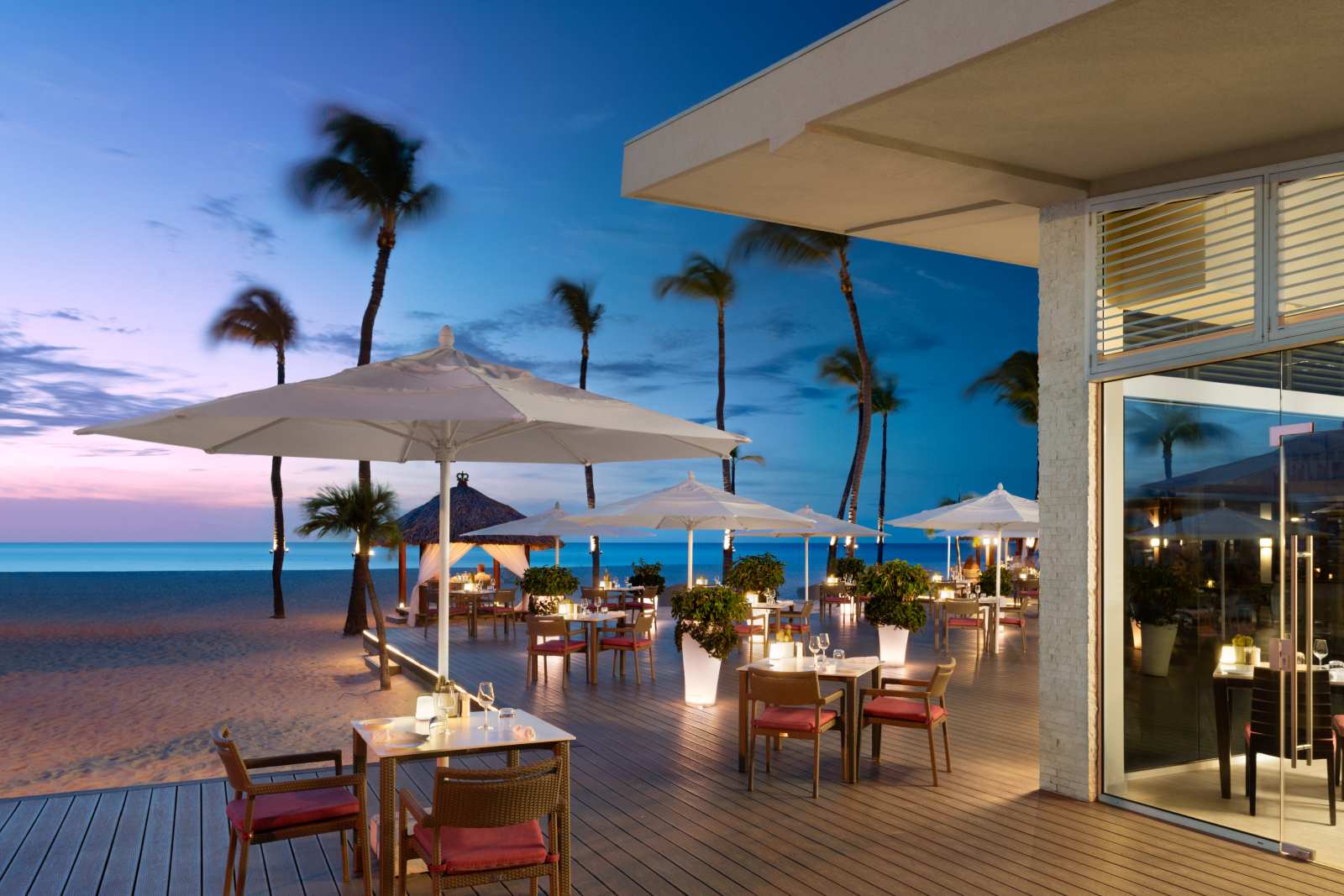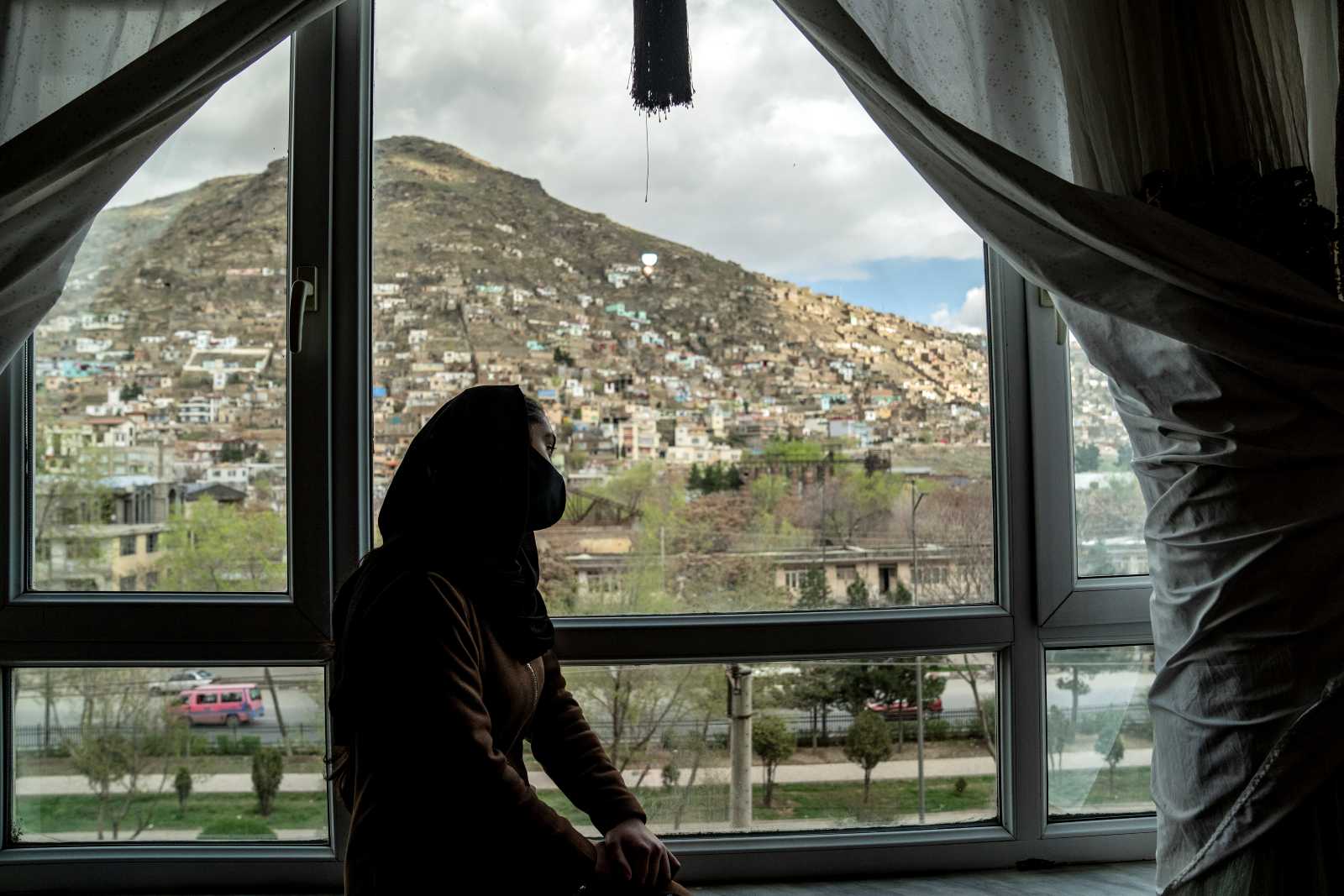Female empowerment
What Zanzibar's spices have to do with gender equality

Most mornings, Fatma Ismail Haji walks through the mangrove swamps along the coast of the Indian Ocean to her spice garden. With a curved knife and a basket in her hand, the 43-year-old spice farmer from the island of Pemba off the coast of Tanzania harvests cinnamon bark.
“You have to be very careful not to destroy the inner layer of the bark, which contains the cinnamon flavour,” says Haji. Back at her home in Makoongwe, Haji begins the meticulous process of cinnamon ripening, where the cinnamon is dried in the sun, sorted, rolled and ground before being sold.
Some of the cinnamon bark is processed into a fine powder, which preserves its rich flavour. For every kilogramme of this cinnamon powder sold, Haji receives around 4 dollars. “The demand is quite high, and we are seeing a lot of interest from buyers from all over the world,” she says.
Pemba is politically part of the semi-autonomous state of Zanzibar. Nutmeg, cinnamon, cardamom, black pepper and cloves are the most popular spices cultivated on the islands of the Zanzibar archipelago.
Haji belongs to a women’s cooperative on the archipelago. In Zanzibar’s conservative Muslim society, deep-rooted cultural norms have long restricted women’s opportunities to work and earn an independent income. Women were generally limited to domestic tasks such as childcare and housework. Today, however, a growing number of women in Zanzibar are seizing opportunities to earn a decent income and improve their livelihoods.
Not just souvenirs
This also means that they combine spice cultivation with another important economic sector on the island. Many women are no longer just spice farmers, but also tour guides. Tourism accounts for an estimated 27 % of Zanzibar’s gross domestic product, generates around 80 % of foreign exchange earnings and creates an estimated 60,000 jobs. Zanzibar is known for its natural beaches, rich cultural heritage and thriving marine life.
At the same time, the archipelago is known as the ‘Spice Islands’. But spices are no longer just popular souvenirs. The global trend is towards holidays where authentic local experiences are an important part of the journey.
Zanzibar’s spice farmers are benefiting from this. Guided spice tours offer visitors an insight into the island’s agricultural heritage, and tourists can experience the cultivation of aromatic spices first-hand.
The business is of immense economic and cultural importance. It promotes sustainable development, strengthens local communities and preserves traditional farming methods. Tourists who explore spice markets and visit gardens enrich their own experiences – and the local economy.
A chance for women
Many of the island’s spices were introduced by Persian traders in the 8th century and later by the Portuguese and Chinese. They found the islands’ climate and fertile soil ideal for growing a range of spices.
To this day, spice cultivation is a livelihood, especially for small farmers. “My family struggled to make ends meet. We have many mouths to feed. But since I started growing spices and doing tours, everything has changed. I earn enough money to feed my family and I can proudly say that I am not only surviving but thriving,” Haji states.
“It makes a lot of sense that not only men, but women too are working and putting food on the table,” says Amina Hassan Jamal, who also works as a spice farmer and tourist guide. With her new income, Jamal can provide healthier food for her family, educate her children and offer them better medical care. “Starting the spice business was the best decision ever. I literally count the money every day,” says Jamal.
But the work of female spice farmers is still not without its challenges. Social, economic and political rights for women in Zanzibar are enshrined in the constitution, but women’s rights groups say that women tend to have inferior land rights compared to men. Their access to land is often indirect and insecure, as they rarely acquire land in their own right.
In a society where patriarchal norms still prevail, women face obstacles that prevent their full economic participation. Discriminatory land-ownership systems, limited access to credit and unequal access to resources continue to hinder their progress.
“Some men in our community still see women as inferior,” Haji complains. “They think we belong in the kitchen and not working in the fields. But we prove them wrong.”
Climate-proof business
Apart from its role in empowering women on the islands, spice cultivation has another advantage. While the Zanzibari agricultural sector in general is increasingly affected by the worsening impacts of climate change, spice cultivation is more resistant to the negative effects of extreme weather conditions. Spices such as cloves, nutmeg and cinnamon show remarkable resilience to fluctuating temperatures and erratic rainfall patterns.
The plants have adapted to Zanzibar’s unique microclimate over the centuries. They have deep root systems that can access groundwater during periods of drought, as well as robust structures that can withstand strong winds and rainfall. In addition, spice plants often have natural defences against pests and diseases, which are exacerbated by climate change and destroy more susceptible crops. The availability of staple crops such as maize and rice suffers from reduced yields and increased vulnerability to weather extremes, emphasising the crucial role of spice cultivation in maintaining Zanzibar’s agricultural productivity in times of climate crisis.
Abdalla Mohammed Juma, Director of the Tourism Department at the Zanzibar Ministry of Tourism and Cultural Heritage, emphasises the threefold importance of spice cultivation for tourism in Zanzibar, the empowerment of local women and the islands’ agriculture. “By growing different plants and using more sustainable farming methods, the female spice farmers are supporting their families, gaining independence and contributing to boosting the economy – and they help to make Zanzibar an attractive tourist destination with a wide range of activities.”
On their tours, Haji and other women give visitors an insight into Zanzibar’s rich world of spices and explain details ranging from the pollination of vanilla to the colouring effects of the lipstick tree. The tourists learn about the entire cultivation process of spices, from planting to harvesting, and about the many uses of these aromatic plants.
They also have the opportunity to taste traditional dishes such as pilau rice, which are prepared with freshly harvested spices. In addition to the culinary use of spices, the tours also explore their medicinal qualities and their role as a remedy in traditional medicine. Visitors learn about cures such as cloves for toothache and nutmeg for insomnia.
Not least because it is their source of income, Zanzibar’s spice farmers are committed to preserving their environment. Through organic farming methods and conservation efforts, they work to maintain the island’s fragile ecosystems. The spice farmers avoid the use of chemical pesticides. Instead, they use natural pest-control methods, such as beneficial insects that hunt harmful pests or organic plant-derived repellents. Moreover, farmers use compost, animal manure and green manure (cover crops that are ploughed back into the soil) to naturally enrich the soil. These practices improve soil fertility and structure, promote healthy plant growth and increase the resilience of the ecosystem.
To prevent the soil from being depleted and to reduce the risk of pests and diseases, farmers also practise crop rotation. This involves alternating different crops on a particular piece of land from one season to the next. By growing different spices and other crops at the same time, farmers create a more balanced and sustainable agricultural system. This diversity can also minimise the risk of crop failure.
Farmers moreover ensure that the cultivation of spices does not harm the environment. This includes setting quotas and timing harvests to allow for natural regeneration.
At the same time, it is undeniable that tourism itself poses considerable ecological challenges for Zanzibar. As important as the industry is for the islands, it can be just as dangerous for the sensitive ecosystems if no attention is paid to sustainability and mass tourism takes centre stage. Numerous analyses show that the influx of tourists can lead to the depletion of natural resources, environmental pollution and the destruction of sensitive habitats such as coral reefs. This environmental pressure exacerbates the climate-related vulnerabilities that Zanzibar already faces, such as rising sea levels and the increasing frequency of extreme weather events.
Tourism is crucial for the islands’ economic growth. However, it is equally important to make sustainable tourism the norm to ensure the long-term health of Zanzibar’s ecosystems. “Our future depends very much on how we protect the environment,” says Haji.
Kizito Makoye is an environmental journalist from Tanzania.
kizmakoye@gmail.com
















